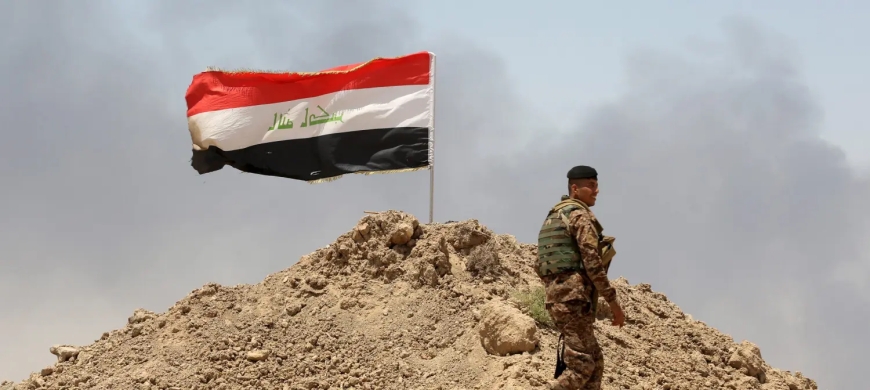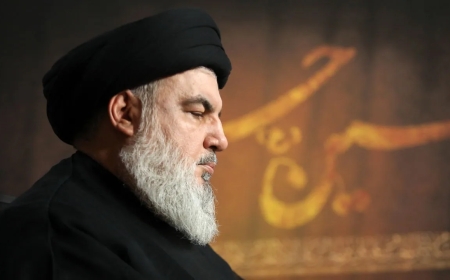Iraq’s Balancing Act: Al-Sudani's Bid to Reshape Iraq’s Political and Military Future

At the time of the U.S. occupation of Iraq and the subsequent fall of Saddam Hussein's regime, al-Sudani was an agricultural engineer working for the government in the southern Maysan province. Given his status as a senior employee and the scion of a Shiite family opposed to the former regime, he was appointed as a coordinator between the city administration and the American governor in Baghdad for conducting business affairs.
In the following years, al-Sudani rose to higher governmental positions. It became apparent that this man was adept at navigating governmental institutions and withstanding their inherent fluctuations. He became a fixture in subsequent governments, serving as the Minister of Human Rights, Commerce, and Labour and Industry across three administrations.
In 2019, al-Sudani founded the "Furat Movement" and aimed to join the ranks of the Shiite elite. Two years later, he was chosen as prime minister through a difficult negotiation.
In October 2022, al-Sudani entered Hadi al-Amiri's residence with a paper in hand, outlining the commitments he sought from government supporters within the "Coordination Framework." Politicians note that after two years in power, he now controls approximately 50 MPs who have effectively broken away from the "Coordination Framework," hinting that "every former MP is a potential partner" in al-Sudani’s new parliamentary bloc.
Al-Sudani is keenly aware that Shiites will face new dynamics in the upcoming elections, where the "Coordination Framework" might splinter or shift to new centres of gravity. A key element of al-Sudani's strategy is to position himself at the head of one such emerging center.
Although retaining allies in Iraq is far from guaranteed, al-Sudani is working to maintain them while also courting hardline Shiite candidates, particularly conservatives and the military. He portrays himself as a reliable partner for major regional players, including Iran. However, his recent actions and behaviour suggest otherwise.
Recently, al-Sudani and Asaad al-Eidani reached a final agreement to form a new political party or coalition. This party poses a significant threat to the existence of the "Shiite Coordination Framework." Politically, both domestically and internationally, it appears that al-Sudani will distance himself further from the Resistance and the Islamic Republic of Iran.
Last winter, Iraqi Islamic Resistance forces agreed to halt their attacks on American bases in Iraq in exchange for Baghdad’s commitment to expel U.S. troops from Iraqi soil, following negotiations with Prime Minister Mohammed Shia al-Sudani. The ceasefire was a precondition for al-Sudani’s visit to the U.S.
During his recent visit to Washington and meeting with Joe Biden, despite Iraqi media hailing his remarks before the American president as "historic," al-Sudani did not broach the topic of U.S. troop withdrawal with Biden. This is despite the fact that, before his visit, al-Sudani's government had formed a high-level military and security committee tasked with negotiating the withdrawal of U.S. forces from Iraq.
In recent days, the issue of American troop withdrawal has resurfaced in the media. Some sources have reported a deal between Baghdad and Washington under which hundreds of U.S. troops will leave Iraq in the first year of the agreement. According to Reuters, multiple informed sources have confirmed that the United States and Iraq have reached an understanding regarding plans to withdraw U.S.-led coalition forces from Iraq. Several sources stated that this agreement might be announced later this month.
These sources indicated that the plan has been agreed upon in principle but requires final approval from both capitals. The agreement stipulates that hundreds of coalition forces will leave Iraq by September 2025, with the remaining troops set to depart by the end of 2026.
It has been suggested that this agreement emerged after more than six months of negotiations between Baghdad and Washington, initiated by Prime Minister Mohammed Shia al-Sudani in January amidst a series of attacks by Iraqi militant groups on U.S. forces stationed in Iraqi bases.
This agreement is likely to be announced at a time when it could present a political victory for al-Sudani, as he seeks to maintain his position while balancing Iraq’s role as both an ally of Washington and Tehran. For the United States, the two-year framework of this agreement offers a "breathing room," providing the possibility of recalibrating should the regional situation change. Ultimately, even if the agreement on U.S. troop withdrawal turns out to be largely symbolic, the very announcement of such a withdrawal signals a significant shift in Washington’s military posture in the region.













































